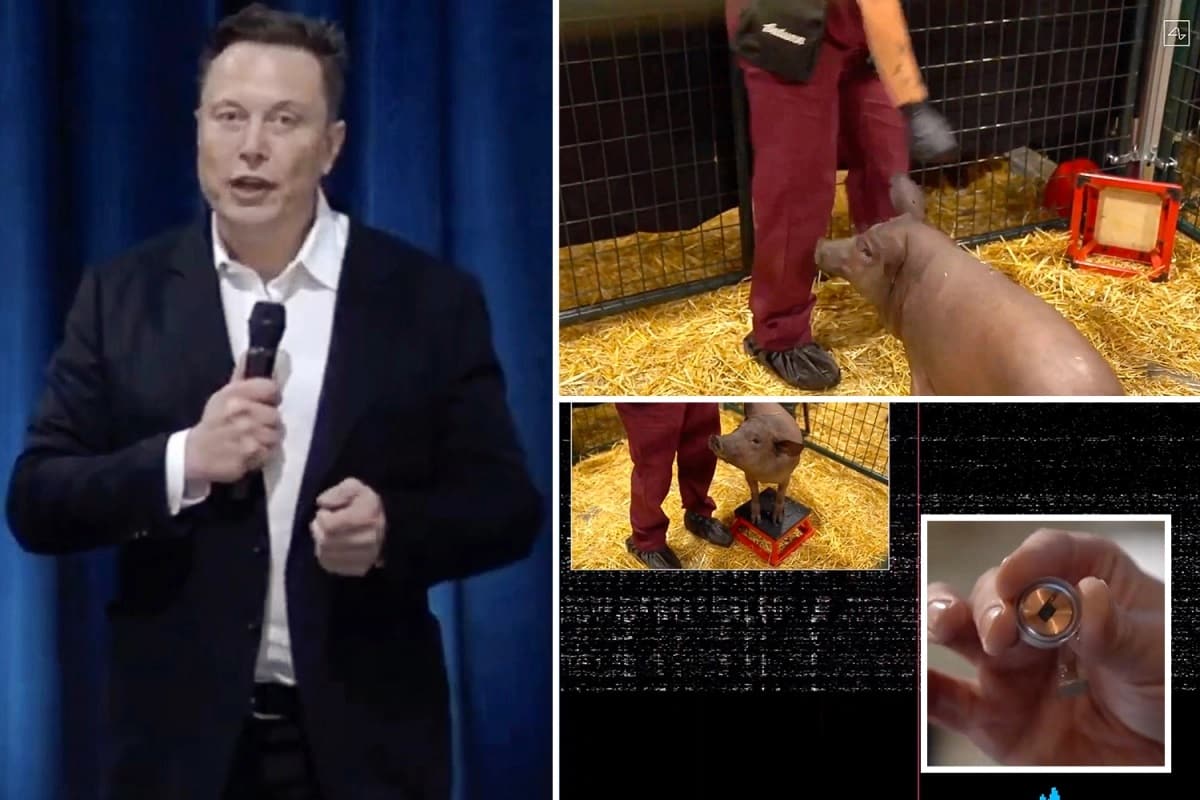8278
0
Elon Musk Is Now Closer To Putting Chips On The Human Brain
Musk came together with investors at an online conference to demonstrate the potential of Neuralink, a start-up operating in the field of neurology.

Yazar: Tom Roberts
Yayınlanma: 29 Ağustos 2020 19:30
Güncellenme: 21 Şubat 2026 06:45
Elon Musk Is Now Closer To Putting Chips On The Human Brain
Elon Musk, who is known as the Thomas Edison of the 21st century, appeared before the world with a brand new project yesterday. Musk came together with investors at an online conference to demonstrate the potential of Neuralink, a start-up operating in the field of neurology. Founded by Musk in 2016, the company tries to collect data about the human brain with wireless microcomputer interfaces that can be placed inside the human brain. The main claim of the company and its boss is that the chips that will be placed in the human brain can heal diseases such as Alzheimer's, dementia and spine damage.'It Will Also Treat Memory Loss'
Musk also says he sees the cure for diseases such as memory loss, hearing loss, depression and insomnia in the chips that will be placed inside his skull. Speaking at the investor meeting, Neuralink's chief surgeon, Doctor Matthew MacDougall, states that after starting experiments on humans, their first goal is to treat paralysis and spinal cord paralysis. Elon Musk said that by the end of this year, necessary permissions will be obtained from the US authorities to be able to experiment on humans.
[caption id="attachment_24679" align="alignnone" width="1562"] In experiments on pigs, it turned out that the chip accurately predicted the animals' brain waves. Photo: Youtube[/caption]
In experiments on pigs, it turned out that the chip accurately predicted the animals' brain waves. Photo: Youtube[/caption]
 In experiments on pigs, it turned out that the chip accurately predicted the animals' brain waves. Photo: Youtube[/caption]
In experiments on pigs, it turned out that the chip accurately predicted the animals' brain waves. Photo: Youtube[/caption]
Speaking to Reuters and not participating in Musk's presentation, scientists added that the project was impressive, but that a lot of work must be done to reach a definitive conclusion.
Making a presentation about the functioning of the project, Musk said that they have already placed chips on two pigs and removed the chip they placed in one pig. In the experiment carried out in the presentation, it was determined that the brain waves of the animals that occurred in certain situations were recorded by the device and that the same movements caused similar brain waves without the device being built. The radius of Neuralink's chip is 23 millimeters wide. Musk claims that the device does not harm human health.
Experts Find The Project Impressive
Graeme Moffat, an academic who works in the field of neurology at the University of Toronto, described Musk's new project as a big step, emphasizing the small size of the chip, the robustness of the power supply and the quality of the diameter of the wireless capacity.
Stanford University neurologist Sergey Stavisky says the company has come an impressive way. “It's pretty impressive to switch to a system that's completely embedded in the brain,” says Stavisky. "This shows that you have a focused team working in different disciplines."
The San Francisco-based company, where 100 people work, recently received an investment of $ 158 million, of which $ 100 million was from Elon Musk.
Musk says that this development in neurology technology brings people together with artificial intelligence at a unique point, apart from the medical side. Musk was known for his attitude towards artificial intelligence.
Neurolink is not the only company that claims to find a cure for neurological diseases by monitoring brain waves. There are other rival players in the market called Kernel, Paradromics and NeuroPace. Medtronic, a world-renowned brand in medical device, is looking for solutions to diseases such as Parkinson's, tumor and epilepsy by producing brain implants.
İLGİLİ HABERLER





European stocks soared and focus shifted to German retail sales after Powell's speech!

Forex Signal For TRY/USD: Inflation Slowdown in November.

Forex Signal For GBP/USD: Bullish Trend Still Not Breaking While Recovery Continues.

Forex Signal For EUR/USD: Starry US Data Points to Higher Fed Increases.

Forex Signal For BTC/USD: Downside Continues as Bitcoin Recovery Moves Less.
En Popüler Haberler
Yorum Yap
Yorumlar
Henüz yorum yapan yok! İlk yorumu siz yapın...